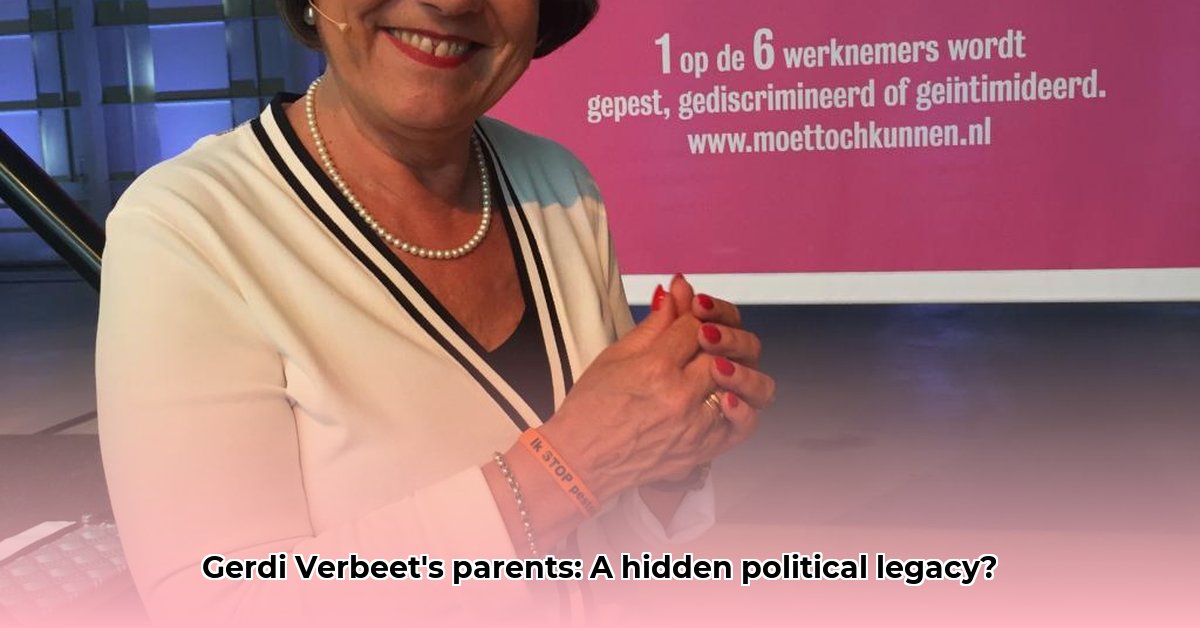
Gerdi Verbeet’s life is more than just a political career; it’s a story of navigating the complexities of Dutch democracy. This isn't just a dry recitation of facts; it's a journey through her rise, the controversies she faced, her eventual departure, and her lasting impact. From her early days as a teacher, to her time as the powerful Speaker of the House, Verbeet’s story offers valuable insights into Dutch politics and the challenges faced by women in leadership. Did her upbringing influence her political career? The answer, like much of her legacy, is complex.
From Classroom to Parliament: A Gradual Ascent
Verbeet’s path to politics wasn't a sudden sprint; it was a deliberate, carefully considered climb. Though the specific details of her transition remain somewhat obscure, her eventual success in the political arena speaks volumes about her dedication and resilience. Her earlier career as a teacher undoubtedly instilled in her valuable skills – patience, strong communication, and the ability to connect with diverse individuals – all of which proved invaluable in the cutthroat world of Dutch politics. How crucial were these early formative years? One can only speculate, but her commitment to public service certainly suggests a deep-seated calling to serve her nation.
The Speaker's Gavel: Navigating the Tumultuous Waters of Dutch Politics
In 2006, Verbeet's career took a dramatic turn. She became the Speaker of the House of Representatives, a role that placed her at the heart of Dutch political life. Imagine the pressure – the constant need for impartiality, the responsibility of maintaining order amidst sometimes-fiery debates. This high-profile position demanded immense composure, fairness, and the ability to navigate complex political landscapes. But were her actions always perfectly impartial? Did her decisions always reflect unbiased judgment? This question remains a subject of ongoing debate and analysis.
The Wilders Years: A Clash of Ideologies
The period encompassing her interactions with Geert Wilders and his Party for Freedom (PVV) is arguably the most controversial chapter of Verbeet’s career. Her decisions regarding points of order (parliamentary rules ensuring order and decorum) often sparked intense debate. Some argued that she simply maintained order in a heated political climate; others claimed favoritism. What’s clear is that this was a period of intense political pressure, with Verbeet caught in the middle of highly charged ideological conflicts. The available records offer fragmented and contrasting viewpoints, making a definitive judgment exceedingly difficult. It's a case study in the complexities of political compromise.
A Difficult Departure: Leaving the PvdA
Verbeet's 2025 resignation from the Labour Party (PvdA) marked another pivotal moment. While the precise reasons for her departure remain somewhat unclear, it's widely believed to be linked to internal disagreements within the party. Possible causes include clashes over policy, internal power struggles, or perhaps a fundamental difference in ideological direction. Understanding the true reasons requires a closer examination of the internal dynamics and tensions prevailing within the PvdA at the time. What’s certain is that her departure underscores the immense pressure and internal conflicts frequently encountered by politicians at the highest levels.
A Legacy That Extends Beyond Parliament
Even after leaving formal politics, Verbeet’s influence continues. She has held various positions on supervisory boards, demonstrating the scope of her expertise and the enduring value of political experience. This post-political career trajectory highlights a broader trend – the continued relevance and influence of experienced leaders beyond the realm of active political office. Indeed, some argue that her post-political influence may even be more effective in driving change.
Key Takeaways: A Lasting Impact
Gerdi Verbeet's career had a significant impact on various stakeholders:
- Political scientists: Her decisions and leadership style offer rich material for study and analysis.
- Historians: Her life and career will undoubtedly become part of the historical record of Dutch politics.
- The PvdA: Her resignation prompted reflection and adjustments within the party.
- The Dutch public: Her tenure as Speaker increased public awareness of parliamentary processes.
- Corporate boards: She brings valuable political insight and experience to her current roles.
Gerdi Verbeet's story is a complex tapestry woven from ambition, challenge, and resilience. Her legacy continues to shape discussions and analysis surrounding Dutch politics, even today reminding us of the intricacies and high stakes involved in shaping a modern democracy. Her journey from a teacher to a powerful political figure offers a compelling narrative, one that continues to be written and reinterpreted as time unfolds.